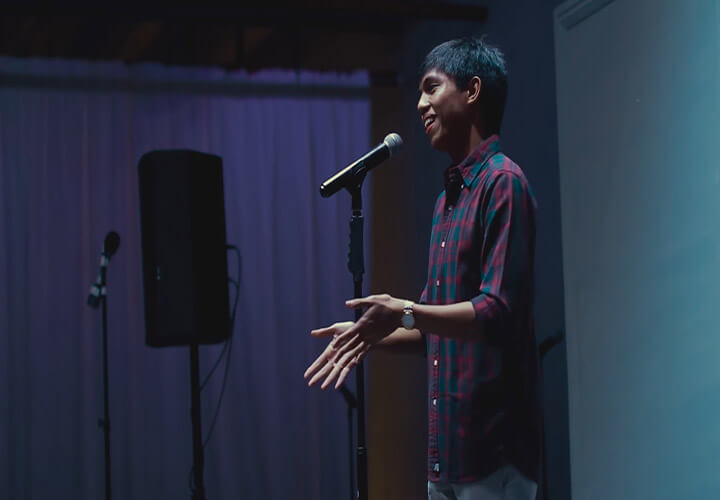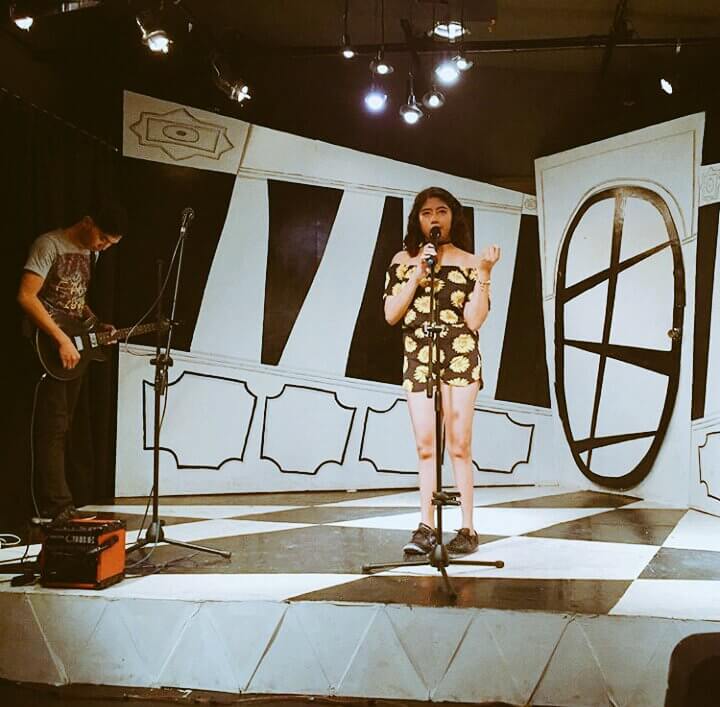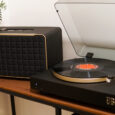Words by Jerika Danielle Clemente
Last August, Words Anonymous held an open mic event entitled “Tambuli: Isang Pagdiriwang ng Wikang Pambansa”. Apart from Spoken Word Artists of Words Anonymous, various spoken word enthusiasts and performers themselves also took part in this night full of poetry and love for our language, Filipino.
I, myself, even took part and it was a fulfilling experience! Yet as I sat there, listening to these artists and their verses, I couldn’t help but wonder a few things: What makes Filipino poetry different (of course, aside from the language) from English poems, from a poet’s point-of-view? What makes spoken word poetry so special?
And so, I interviewed four of the many talented and inspiring spoken word artists present during the event and these are the answers I got:
Serge Gabriel (from Words Anonymous)
Why Spoken Word?
“Well, it’s strange, because for me I really just loved writing poetry since I was a kid. I don’t know, when everyone wanted to play basketball, I was a writer.
[And] I didn’t know that Spoken Word actually existed till I was in third year or fourth-year high school. All I knew was when I liked a girl, I would write a poem about her and when I was brave enough, I would talk to her on the phone and read the poem to her, and yun, wala lang. I realized some poems are better off written and read, [while] some are better read out loud and so I decided to try it [spoken word poetry] out.”
What do you think is the leverage of Filipino poetry to us Filipinos compared to English poems?
“When you translate something into Filipino – not necessarily Tagalog – I don’t know, I think there really is something about our language in general – cause when you look at the syllabication, its full of ba-e-i-o-u, so it’s really appealing. I think rather than trying to understand the language as is, sometimes the experience of just hearing it and enjoying what you’re hearing is a good experience.”
Bess Gonzales (from Titig Poetry)
Why Spoken Word?
“Dito kasi malaya, parang naging ito yung way ng [aking] paghinga.”
What do you think is the leverage of Filipino poetry to us Filipinos compared to English poems?
“Well, to be honest, pag Filipino, mas dama ng tao, mas ramdam nila kung ano yung gusto mong maramdaman [nila].”
Louise Meets (from Words Anonymous)
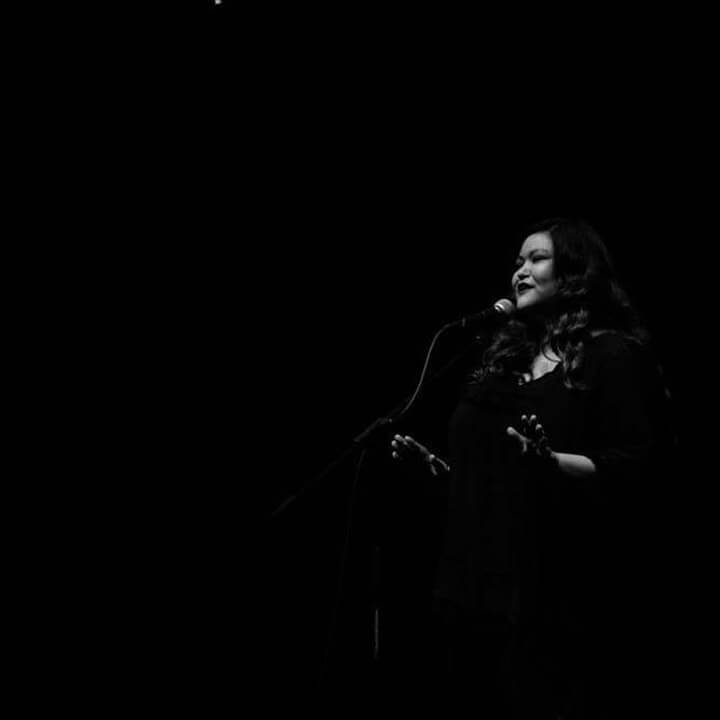
What do you think is the leverage of Filipino poetry to us Filipinos compared to English poems?
“Kasi likas sa Filipino as a language na sobrang ganda niya and personally, I started writing in English lang kasi English was spoken [while] growing up.
Pero when I started doing Spoken Word I’ve gotten inspired to try writing in Filipino and that’s when I discovered how beautiful the language is and yung etymology lang nung mga salita – na kung pano linikha yung certain words – and I also love how Filipino is very onomatopoeic, na kung ano yung tunog nung word, it calls to mind the meaning of the word, like the word “Ragasa”. So, on its own, it’s a very poetic language kaya ang sarap niyang paglaruan when it comes to poetry and writing.”
Here’s a video of one of Louise’s performances:
–
Annia Naguit (independent spoken word artist)
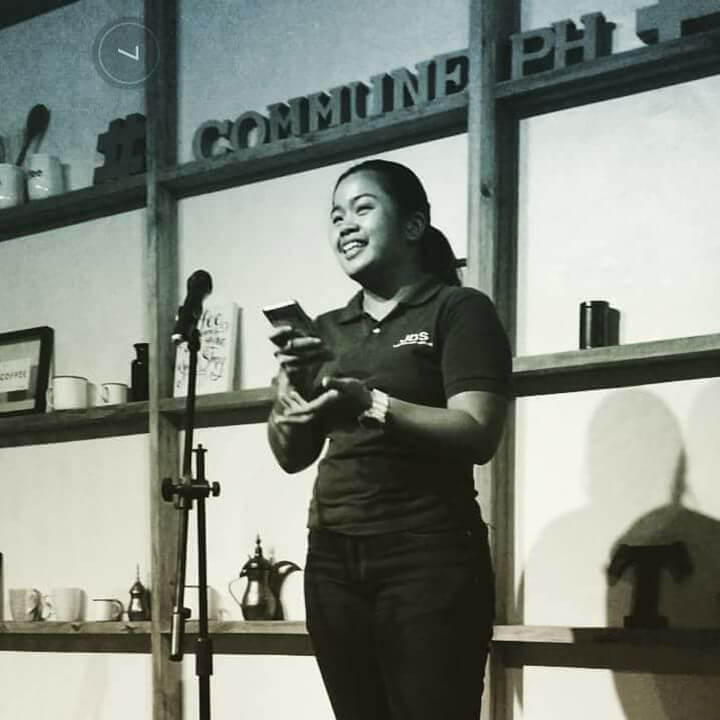
Why Spoken Word?
“Kasi for me, what really gripped me sa spoken word, [is that] it speaks more creatively. Kasi nung unang beses akong nakarinig neto, parang nakarelate talaga ako, it speaks my truths, [and] mas free kasi siya in terms of writing, mas free siya kesa sa traditional poetry in terms of sa pagsusulat and ako kasi, theater baby ako, so writing and theater – spoken word is the love child of poetry and theater. For me, sobrang daming beses narin kasi nasave ng spoken word ang buhay ko kaya ito talaga naging craft ko.”
What do you think is the leverage of Filipino poetry to us Filipinos compared to English poems?
“When I started falling inlove with spoken word poetry, mas aware ako with the international artists, lately lang talaga ako [na]exposed sa local. And I really fell in love – mas nainlove ako sa language natin, kasi may mga certain words na sobrang simple lang na minsan parang naaubso natin [yung words] pero kung iisipin mo, wala nga siyang translation sa English. Like the word “tampo”, it’s a very simple word pero hindi mo siya maeexplain nang maayos in English.
And [sa] tunog lang, ang sarap pakinggan ng Filipino and hindi siya mahirap aralin kung tutuusin, kasi nga, kung paano mo siya binabasa ganon mo rin siya babanggitin. And yung mga deep words, like my favorite deep word, “Aplaya”, it means “shore”, ang ganda ganda niya pakinggan kahit sabihin mong ang simple lang ng meaning. [And] actually sobrang poetic ng words natin eh, ng language [natin], even just one word is very poetic.”
Here’s a video of one of Annia’s performances:
–
There really is more to Filipino poetry and spoken word poetry. The Filipino language can evoke such powerful emotions that English or some other languages simply can’t outmatch.
If you’ve ever wondered, though, how it would feel like to write your own (spoken word) poetry and finally head on to an open mic event and perform, following this tip from Louise Meets on how to start writing your own piece is a good place to start:
“I always like to say that Spoken Word is a conversation with yourself and that writing is the most honest conversation you would ever have. Kasi ikaw, you know your truths and basically, that’s all that writing is – pouring out your truth on paper. So think of it as a conversation with yourself. Talk with yourself, check in [on] how you are, what’s been bothering you lately and so on and so forth. So, that’s how it starts, don’t even think about poetry first, think about getting it out there.”

